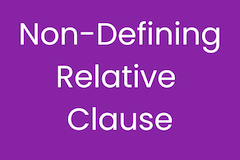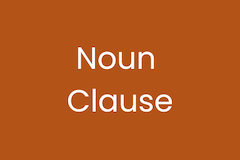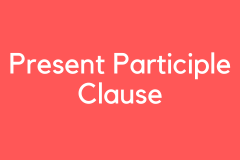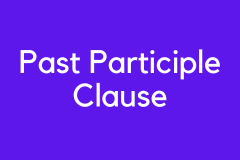Relative Clause with Quantifiers
Listen to four conversations using the grammar point.
Answer the following questions about the interview.
Relative Clause with Quantifiers
Point 1: The quantifiers "all," "some," "none," "many," and "few" are used in relative clauses.
- I have many friends, some of whom are rich.
- We ordered lots of food, all of which was unhealthy.
- There were lots of people at the party, many of whom you know.
- I saw a lot of birds, a few of which I had never seen before.
Point 2: For things, use "which" in the clause.
- We only eat vegetables, all of which we grow in our garden.
- She bought a lot of gifts, none of which were cheap.
- He gave a lot of advice, none of which I agreed with.
- The cafe has many tables, some of which are expandable.
Point 3: For people, use "whom" in the clause.
- The room was full of people, none of whom looked happy.
- I teach a lot of students, some of whom are very bright.
- I talked to many people at the party, some of whom knew you.
- We met the entire family, all of whom were very nice.
Point 4: If the phrase refers to the subject, it goes before the verb.
- I ate a lot of food, none of which was healthy.
- I ate a lot of food. None of it was healthy.
- We had a lot of problems, most of which were not serious.
- We had a lot of problems. Most of them were not serious.
Point 5: If the phrase refers to the object, it goes before the subject.
- I have studied many languages, none of which I am fluent in.
- I have studied many languages. I am fluent in none of them.
- He has many rich friends, none of whom you know.
- He has many rich friends. You know none of them.
Main Text Goes Here










